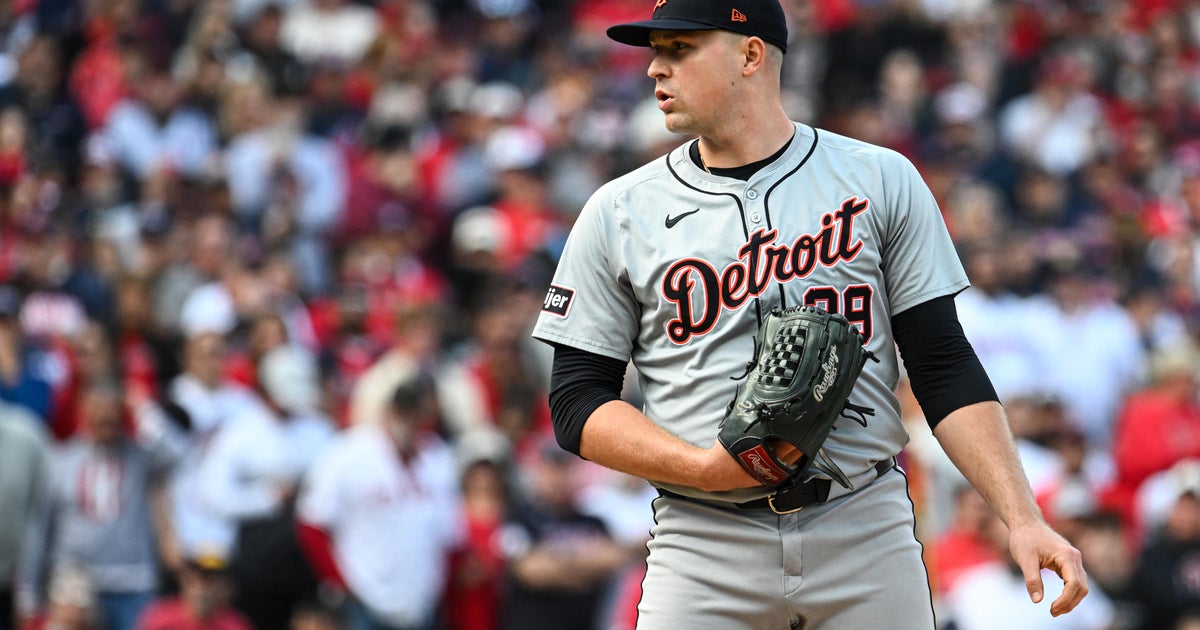Report: NFL Considering Longer Suspensions For Domestic Violence Incidents
By Ashley Dunkak
@AshleyDunkak
CBS DETROIT - In the wake of national criticism regarding the relatively lax punishment of popular Baltimore Ravens running back Ray Rice, the NFL is reportedly considering more severe penalties for future domestic violence cases, according to the Washington Post.
The Post reports that the stricter sanctions could include a suspension of four to six games for a first offense and a season-long ban for a second offense.
Rice recently received a suspension of only two games for apparently knocking his wife unconscious, even though the aftermath of what transpired - Rice dragging her limp body from an elevator - was captured on video and widely distributed.
"A lot of us were disturbed by what we saw," one person familiar with the NFL's discussions about implementing harsher punishments told the Post. "I think you will see something in probably the next few weeks."
The NFL has publicly defended its suspension of Rice as appropriate considering the circumstances, but many in the media - and in the general public - have decried the punishment as weak, especially considering the NFL routinely suspends players twice as long for use of performance-enhancing drugs and illegal substances.
Brandon Moore, Frank Alexander, Jayron Hosley and Rokevious Watkins have all been suspended four games for 2014 because of substance abuse. Will Hill has received a six-game suspension for the same offense, while Fred Davis is suspended indefinitely and Daryl Washington is out for a year.
Jake Knott, Stedman Bailey, Lance Johnson, Dion Jordan, Orlando Scandrick and Robert Mathis have all been suspended the first four games of 2014 for use of PEDs, and LaVon Brazill has been banned for a year.
Some players are not particularly concerned that the NFL's track record on punishment for players accused of domestic violence seems to indicate the league takes such offenses less seriously than those related to substances.
"Honestly, assault towards anyone is – really doesn't affect this game," Detroit Lions wide receiver Golden Tate said in June. "It's not affecting how I play on the field. I think drugs have a direct correlation on how you perform and if you have an advantage or disadvantage on the field.
"What you do outside of football is your business," Tate added. "Now I don't agree with assault or any of those other illegal actions, but it is what it is. That's not football-related."
Former first-round pick Lawrence Jackson had an explanation similar to that of the NFL - that while the league's collective bargaining agreement painstakingly outlines punishments for substance abuse and PED use, discipline for domestic violence is not clear-cut.
"It's cut and dried that if you get caught with X amount of stuff, or if you get caught with something in your system, you're going to get X amount of punishment. Domestic violence isn't drawn up that way," Jackson said in June. "Say a guy gets suspended for a year and you find out that you suspended a guy that actually wasn't guilty of what was going on. It's just a slippery slope when you get into that because each case is different with domestic violence. With PEDs, you get your positive test, you get flagged, you have an opportunity to clear your name, but you violated the rules, so you have to get the mandated punishment, and that's different for domestic violence."
Whether the NFL believes its punishment of Rice is consistent with precedent or not, the league can hardly deny it looks bad that Rice got just two games for reportedly knocking his wife unconscious while dozens of other players have been handed suspensions of four or more games for what they put in their own bodies.
Ever since the NFL announced Rice's suspension, the league has been fighting the perception that it does not care about domestic violence. Now it looks as though the NFL may be taking steps to show it cares rather than just say it does.



